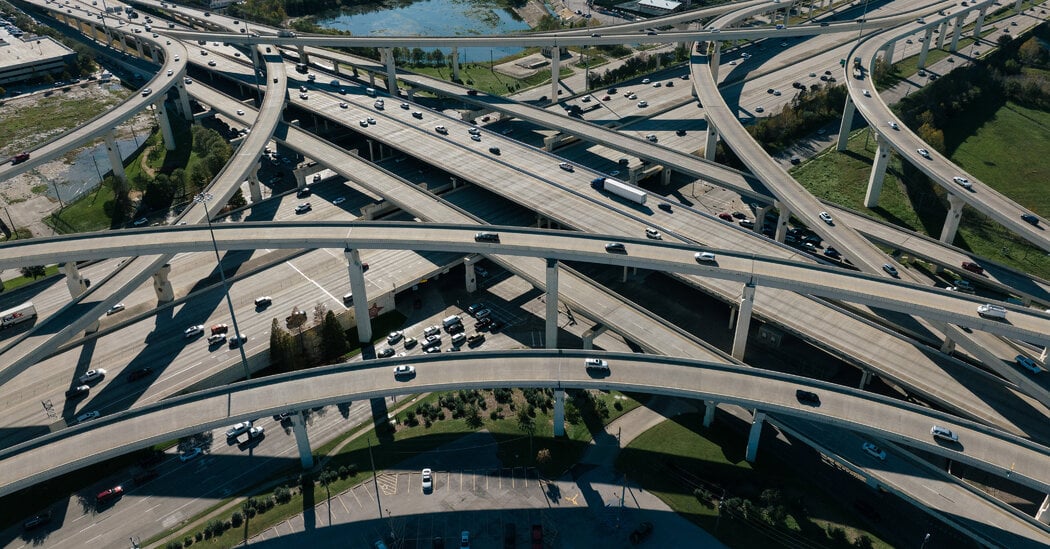For critics of widening projects, the prime example of induced demand is the Katy Freeway in Houston, one of the widest highways in the world with 26 lanes.
Immediately after Katy’s last expansion, in 2008, the project was hailed as a success. But within five years, peak hour travel times on the freeway were longer than before the expansion.
Matt Turner, an economics professor at Brown University and co-author of the 2009 study on congestion, said adding lanes is a fine solution if the goal is to get more cars on the road. But most highway expansion projects, including those in progress in Texas, cite reducing traffic as a primary goal.
“If you keep adding lanes because you want to reduce traffic congestion, you have to be really determined not to learn from history,” Dr. Turner said.



For anyone wondering what that looks like-
Absolute insanity.
Where are the bridges? How do you walk from one side to the other?
Oh yeah, right, of course. But how do you even drive from one side to the other?
You don’t really… You exit and follow the service road until you find a way to get across, usually by going under.
I hate driving in Texas because this kind of shit is everywhere. Middle of nowhere and want to get to the rest area ahead? Exit and follow the service road for a mile.
I feel like Texas intentionally did that so that everything seems large af. If the exit road is long af then it must make you feel like the place is large when in reality it is just inefficient spaghetti
It’s not an exit road. The service road is a parallel road to a highway that contains all the turns with occasional on/off ramps into the highway. It’s actually a pretty efficient design, as it reduces the amount of on/off ramps needed. Similar design style is local vs express lanes in some highways.
Tl;dr less ramps = less slowdowns
Walk? In Houston? Nope.
Hey this looks just like my failed Cities Skylines build!